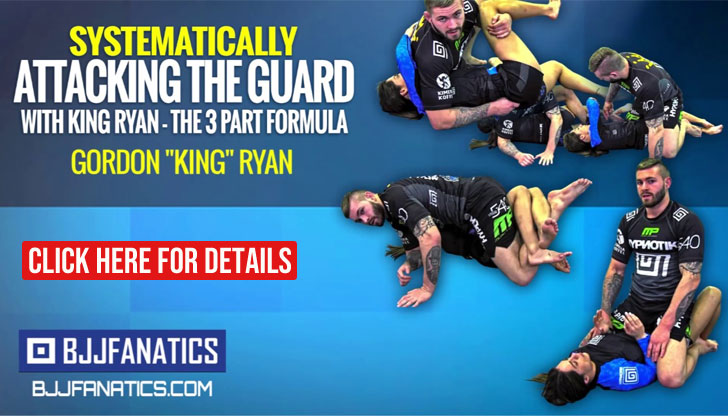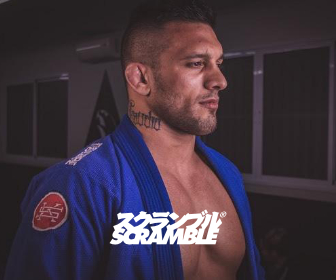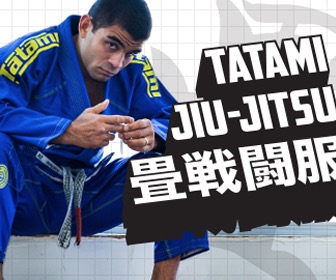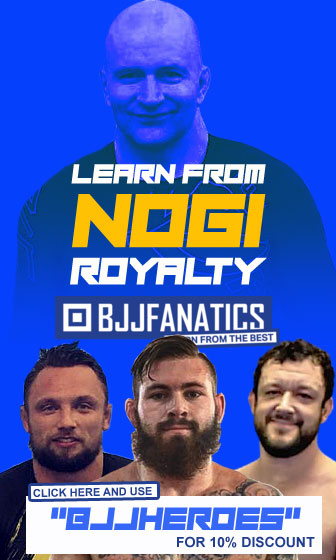Parents often ponder and ask themselves when is it safe to enroll their children in an activity such as Brazilian jiu-jitsu? Being a contact sport, the immediate threat would seem to be the physicality of the game, but there are other factors to consider.
In a recent interview given to Tatame Magazine (in Portuguese), black belt World and Pan American champion Yuri Simões mentioned that even though his father was a big fan of jiu-jitsu, he didn’t enroll him in a class until he was 9 years old, fearing that Yuri would lose interest too quickly in the sport if he was any younger. This is a valid point. When does a child have social maturity to start practicing martial arts, more specifically jiu-jitsu?
My father was a purple belt, he trained at home many times. He had mats indoors and his friends would come around to roll, they would let me take part. I learned basic positions, but nothing serious. I always asked my dad to sign me on a class but he held me off, afraid that I would stop early. – Yuri Simões
There is also the competition factor. In a martial art such as jiu-jitsu, competition is highly praised, and parents often live through their children’s success, forcing them to engage in the sporting arena at an early (and highly important) stage in their kid’s social development.
To answer “when should a child start practicing Brazilian jiu-jitsu/martial arts” and “when is it OK for a kid to start competing in jiu-jitsu” we contacted Hernani Caroço, an experienced psychologist, who graduated from ISPA (Instituto Superior de Psicologia Aplicada) university in 2008, who has been working with underage children between the ages of 3 and 17 for many years. Mr. Caroço had the following statement:
“An activity of this kind can promote the child’s development, not only physically but also socially and emotionally. The control and management of aggressiveness are important assets in children with symptoms of depression and behavioral disturbances, and participating in jiu-jitsu classes in a balanced manner can help him/her cope and accept these more delicate emotions.
Baring exception to certain impairments, specific to each case, we can say that at 5-6 years of age a child is prepared to take part in martial arts classes, however, competition should be introduced at a later stage, from 8 to 10. Not only will an 8-10 year old child have the maturity to deal with the frustration of defeat, they will also be more predisposed to following the rules set to each specific game, this way receiving supplementary self fulfillment from the activity. – Hernani Caroço
The possible consequences of competitive failure will be proportional to the child’s emotional/social “safety net”, which should be built by its family, friends, coach(es), and teammates. If this “net” is weak and incapable of cushioning the negative impacts of defeat, the consequences will be much greater. What this means is that it is important for the child to have other stimuli, such as social life and a family that does not center itself on their kids’ wins as well as his/her defeats. The mind of a young person is always in development and should not restrain itself into one aspect of life.”
So here lies the answer. Many parents want to produce world champions and their forceful behavior may have a negative impact on the child’s psyche, which may manifest itself at a later stage. Does each child develop at its own pace? Certainly, but these aforementioned guidelines should be kept in mind, as should the youngster’s enjoyment and fulfillment of participating in this activity.
Cover picture provided by Fightzone London.
















My husband and I decided that our son should learn martial arts for his physical and social development. We are thinking if jiu-jitsu is a good start but since it is a contact sport, I’m not sure if my son’s ready for that. However, this article educates me that participating in jiu-jitsu classes in a balanced manner can help my son cope with and control aggressiveness. Thanks for this informative article!
I would suggest going to Gracie Brazilian jiu jitsu bully-proof it does exactly what it says makes your kid bully proof there is no striking involvedand
My son is an accomplished three sport athlete who received a scholarship full ride through college. As amazing as the ride was watching every meet match and game- we only wanted our son to be happy and take pride in his hard work and determination. We shared every defeat quietly with strong arms letting him know that these are not the things that define him. He is what is important to us. All the years of watching other parents actively putting downtheir children publicly or pushing them to be ssomething they clearly just couldn’t be- it broke my heart for those boys. Activities are to enrich our childrens lives and teach important life lessons. The human race never ceases to amaze me. I put my child in every activity possible starting at the age of 3. I wanted him exposed to everything so he could choose his own path athletically.
Wise words, Bentley. As a nonviolent father of an extremely athletic and rough (and smart!) 2.5 year old, I am beginning to consider how best to allow him to pursue his energy/passions. His mother and I don’t do any martial arts or watch any sort of fighting or anything but if your son likes to test himself vis-a-vis other kids, I believe you just need to give him the tools to do so safely and appropriately. Your philosophy seems so common sensical but sadly common sense is not common sometimes.
Love your amazing mentality while raising your son. He is very lucky to have parents like yourself.
Thank you for sharing and informing other parents about what really matters most, our children. They can’t grow up to be strong and feel good about who they are when parents talk down to them or make them feel less because they don’t always win. We all need to be more like you!
I guess I have about the best age for my kids to train and compete in bjj. So in my humble opinion, the closer you can get to four years old the better the chance your child will have a positive experience starting BJJ. Before I introduce my kids to Borets sports club and Biotexcom jiu-jitsu team, I made a few key steps in analyzing whether my kid ready or not. So to my mind, first you should answers to self if your child has enough verbal communication skills that they can communicate their needs and desires to the instructor? Do they enough bathroom trained? If they ok with body contact with other kids. By this I mean that BJJ is a “contact sport” so your child needs to be somewhat prepared to wrestle and have physical contact with other children. A great instructor will introduce grappling and contact over time. But nevertheless, there will be contact. Nevertheless, there’s no real perfect way to figure out if your child is ready but to give it a try. The best way to get started is to call a school and schedule an appointment for a trial class (as we did). I think the most important is to encourage kids on and off the mat with positive, realistic expectations. And remembering, Jiu-Jitsu is tough enough on its own.
Starting early is a huge advantage, especially if kid likes it! No matter the sport pretty much, so JJ is not an exception I guess. And regarding all of this “social net” and failure – well you gotta teach your kid to accept failures just like he accepts successes. Noone can be the best at everything at every moment in time after all.